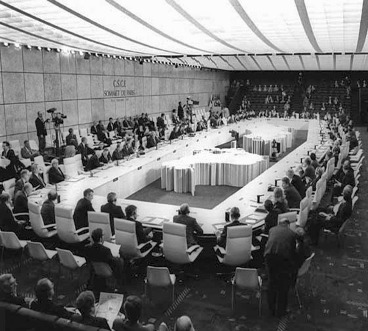Economic Cooperation and Trade

Russia’s Alpine Assets: Money Laundering and S...
Jul 18, 2023Switzerland has for years been a primary destination for Russian money laundering and, since the Russian invasion of Ukraine, a weak link in Western sanctions enforcement. This Helsinki Commission hearing […]
Helsinki Commission Announces Briefing on US-Europe ...
Dec 12, 2022WASHINGTON—At a virtual kickoff event on December 13, Co-Chairman Cohen and Ranking Member Wilson launched the US-Europe Coalition on Russia Sanctions. NO SAFE HAVEN Launching the US-Europe Coalition on Russia […]

European Energy Security Post-Russia
Jun 07, 2022Russia is weaponizing energy to prolong its unlawful invasion of Ukraine. Unfortunately, the sanctions that Europe and the United States have put in place have not been enough to curb […]
European Energy Security Focus of Upcoming Helsinki ...
Jun 02, 2022WASHINGTON—The Commission on Security and Cooperation in Europe, also known as the Helsinki Commission, today announced the following hearing: EUROPEAN ENERGY SECURITY POST-RUSSIA Tuesday, June 7, 2022 2:30 p.m. Watch […]
Cardin and Wicker Discuss July 2021 Congressional De...
Jul 21, 2021Mr. CARDIN. Madam President, I take this time to talk about the work of the U.S. Helsinki Commission in a recent opportunity we had to participate in the OSCE Parliamentary […]

Helsinki Commission Commemorates 45 Years of Advanci...
Jun 03, 2021WASHINGTON—To commemorate the 45th anniversary of the Commission on Security and Cooperation in Europe, also known as the U.S. Helsinki Commission, on June 3, Chairman Sen. Ben Cardin (MD) and […]

The OSCE Celebrates 30 Years of the Charter of Paris
Nov 20, 2020By Emma Derr, Max Kampelman Fellow November 21, 2020, marks the 30th anniversary of the Charter of Paris for a New Europe, a groundbreaking document of the Conference on Security […]
Hastings and Wicker Call for Free and Fair Elections...
Oct 27, 2020WASHINGTON—In response to the tumultuous change of power in Kyrgyzstan, Helsinki Commission Chairman Rep. Alcee L. Hastings (FL-20) and Co-Chairman Sen. Roger Wicker (MS) issued the following statement: “Kyrgyzstan should […]

Hastings: Petty Parochialism Denies OSCE Vital Leade...
Jul 14, 2020WASHINGTON—Following yesterday’s failure of OSCE representatives to renew the mandates of four leadership positions—the OSCE Secretary General, the High Commissioner on National Minorities, the Representative on Freedom of the Media, […]
Congressional Delegation Led by Chairman Hastings Ch...
Feb 25, 2020WASHINGTON—Helsinki Commission Chairman Rep. Alcee L. Hastings (FL-20) last week led a bicameral, bipartisan congressional delegation to the OSCE Parliamentary Assembly’s (OSCE PA) 19th Winter Meeting in Vienna, Austria. At […]
Public Diplomacy, Democracy, and Global Leadership
Dec 05, 2019For more than a century, the United States has advanced shared human rights, economic, and security policy goals in the transatlantic relationship by cultivating people-to-people ties through public diplomacy initiatives. […]
Helsinki Commission to Review Role of Professional E...
Dec 02, 2019WASHINGTON—The Commission on Security and Cooperation in Europe, also known as the Helsinki Commission, today announced the following hearing: PUBLIC DIPLOMACY, DEMOCRACY, AND GLOBAL LEADERSHIP An Approach for the 21st […]
